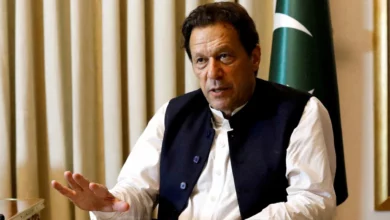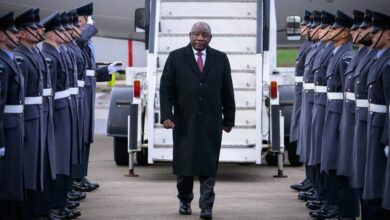Allegations of corruption and financial violations took center stage during Friday’s Doctors Syndicate’s general assembly meeting. Nevertheless, the Muslim Brotherhood majority inevitably pushed budgets through.
Friday’s assembly, held to discuss last year’s budget and approve next year’s, kicked off with scuffles between doctors, and ended with a critical announcement by representatives of the Central Auditing Agency. The agency highlighted financial discrepancies exceeding LE1 million between its own findings and the figures in the syndicate’s report.
In a scene similar to Islamist demonstrations in Egypt, private buses that had transported Brotherhood doctors from different governorates surrounded the yard of Qasr al-Aini Hospital and the affiliated campus of Cairo University faculties of medicine and dentistry.
The Friday sermon was disrupted by loud verbal clashes and subsequent scuffles between the graduating class of 2011 doctors from Alexandria and doctors responsible for organizing the event, who refused to let the new doctors in without adequate proof of syndicate membership.
Doctors affiliated with the Brotherhood had decided to perform the prayer at Qasr al-Aini Hospital’s conference hall, where the assembly was being held.
Tensions rose when the new doctors forced their way into the hall.
They claim the syndicate deliberately delayed the issuing of their syndicate ID cards to prevent them from attending the general assembly.
Mona Mina, a member of the syndicate council, said newly graduated doctors have always been the backbone of general assemblies.
Assistant Secretary General of the Syndicate Abdallah al-Keryony, a Brotherhood member, went on stage to blame the syndicate branch in Alexandria for the delayed IDs. He stressed, however, that the assembly would not take place until they are sure that all attendants inside the hall are doctors enrolled in the syndicate.
“We won’t allow transgressions,” he stated emphatically.
An agreement was eventually reached to register the names of doctors without IDs. The Alexandria branch would be responsible for making sure all the doctors were syndicate members.
The general assembly meeting began with recitations of the Quran. Following the opening speeches, Central Auditing Agency representatives announced the findings of their report, which sparked angry reactions by the Brotherhood, who shouted slogans against the agency.
Brotherhood doctors linked the Central Auditing Agency with “feloul,” the word used for former regime members, and argued the report was only wasting time.
Doctors from the Doctors Without Rights movement, however, stressed it was their money and they had a right to know where it went.
The Central Auditing Agency report claimed that the value of the LE330,000 deficit in the syndicate report did not include an estimated LE1.263 million that was moved to other accounts. This sum pushes the deficit up to about LE1.593 million.
An estimated LE802,000 of the misplaced funds, attributed to the syndicate's election expenses, was allocated to deferred administrative expenses.
In its response to the Central Auditing Agency representatives, the syndicate hinted that these violations were inherited from the old regime. If indeed inherited, this would implicate Brotherhood leading member Essam al-Erian, who served as treasurer of the union from 1992 until 2011.
No elections were held in the syndicate between 1992 and 2011, when it was mainly dominated by members of the now-defunct National Democratic Party and the Brotherhood.
Keryony expressed respect for the Central Auditing Agency and stressed that its recommendations would be taken into consideration.
“We only blame the Central Auditing Agency for its delay in sending us these notes,” he said. “We only learned about them the day of the general assembly meeting, but we will be the first to file reports to the prosecutor general against all those who prove to be involved in financial or administrative corruption. Nobody is above the law.”
Erian, swiftly defending himself against accusations, posted a response on his official Facebook page: “I challenge any thief or liar who falsely claims I committed violations as treasurer of Egypt’s Doctors Syndicate.”
“If they do not publish a denial immediately, I will sue them,” he warned.
Doctors from the Ultras White Coats movement demonstrated at the end of the assembly in protest against financial violations, calling for demonstrations this week in front of the syndicate headquarters. The exact date of the demonstration has not been set yet.
Amr al-Shura, the Doctors Without Rights spokesperson, told Egypt Independent that the movement would begin collecting signatures from doctors to file a complaint to the prosecutor general and open an investigation into the financial violations mentioned by the Central Auditing Agency.
The general assembly meeting ended with the adoption of last year’s and next year’s budgets in spite of all these events, pushed through by a Brotherhood majority.
Promises of approving the doctors’ new system for payment, which doctors have been demanding for years, have been repeated. Syndicate head Khairy Abdel Dayem said the new system would be adopted by 1 July.
Keryony stated the syndicate council insisted that an adviser to the finance minister should attend general assemblies to erase any doubts about the syndicate’s credibility when it comes to the new system.
However, Ahmed Hussein, a member of the syndicate council and Doctors Without Rights, expressed skepticism on the matter. He added that sources within the Shura Council, the upper house of Parliament, indicate that the new system will be rejected.
“I hope that my doubts prove to be wrong, but the syndicate has made its place very difficult,” Hussein said. “Not approving the new system by 1 July will lead to a real crisis between doctors and the syndicate council.”




